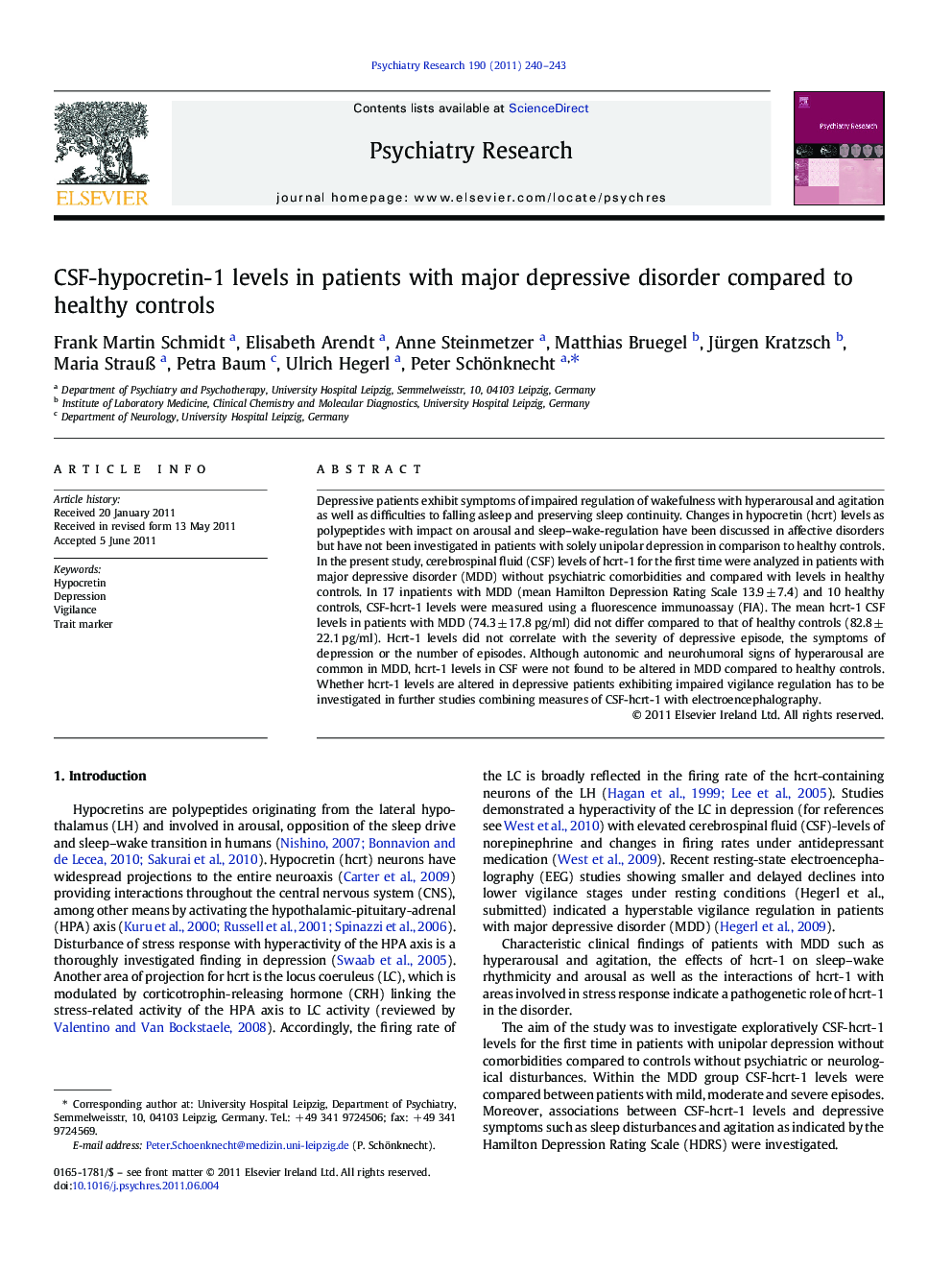| Article ID | Journal | Published Year | Pages | File Type |
|---|---|---|---|---|
| 6816270 | Psychiatry Research | 2011 | 4 Pages |
Abstract
Depressive patients exhibit symptoms of impaired regulation of wakefulness with hyperarousal and agitation as well as difficulties to falling asleep and preserving sleep continuity. Changes in hypocretin (hcrt) levels as polypeptides with impact on arousal and sleep-wake-regulation have been discussed in affective disorders but have not been investigated in patients with solely unipolar depression in comparison to healthy controls. In the present study, cerebrospinal fluid (CSF) levels of hcrt-1 for the first time were analyzed in patients with major depressive disorder (MDD) without psychiatric comorbidities and compared with levels in healthy controls. In 17 inpatients with MDD (mean Hamilton Depression Rating Scale 13.9 ± 7.4) and 10 healthy controls, CSF-hcrt-1 levels were measured using a fluorescence immunoassay (FIA). The mean hcrt-1 CSF levels in patients with MDD (74.3 ± 17.8 pg/ml) did not differ compared to that of healthy controls (82.8 ± 22.1 pg/ml). Hcrt-1 levels did not correlate with the severity of depressive episode, the symptoms of depression or the number of episodes. Although autonomic and neurohumoral signs of hyperarousal are common in MDD, hcrt-1 levels in CSF were not found to be altered in MDD compared to healthy controls. Whether hcrt-1 levels are altered in depressive patients exhibiting impaired vigilance regulation has to be investigated in further studies combining measures of CSF-hcrt-1 with electroencephalography.
Related Topics
Life Sciences
Neuroscience
Biological Psychiatry
Authors
Frank Martin Schmidt, Elisabeth Arendt, Anne Steinmetzer, Matthias Bruegel, Jürgen Kratzsch, Maria StrauÃ, Petra Baum, Ulrich Hegerl, Peter Schönknecht,
